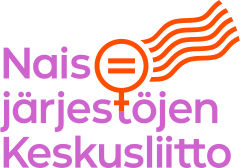Finlands Minister for Noordic Cooperation and Equality Thomas Blomqvist’s speech at the International Helvi Sipilä Seminar on International Women’s day.
Dear Friends and Colleagues,
It is a great pleasure to participate in this famous seminar! The Helvi Sipilä Seminar shows what co-operating can be at its best: effective, long lasting and inspiring. As was Helvi Sipilä herself, a true icon in the global gender equality sphere.
Many improvements have been made since Helvi Sipilä’s time. But we still have much work left to do. To this day, not one country can say that gender equality has been fully achieved, and Finland is no exception.
The Finnish Government has set a clear goal: To make Finland a leading country in terms of gender equality. This ambition is reflected in the Government Programme and in the Ac-tion Plan for Gender Equality. Both contain a record number of gender equality measures.
Of course, the work cannot be done by the Government alone. In Finland, we have a long tradition of co-operation between political actors and women’s organisations, civil society, academia, and gender equality bodies. I firmly believe this co-operation has helped pave the way for the progress made, and that it’s equally important for the steps ahead.
The work towards gender equality is also rooted in human rights. Finland is committed to a number of international and European human rights treaties, including on women’s rights.
In the world today, we need strong commitment to these core principles. In the last dec-ade, we have witnessed a worrying backlash in gender equality and women’s rights, both in Europe and globally. This is a threat that needs our combined efforts on a daily basis.
Dear Friends,
Despite the challenges that remain, progress has also been made. Many initiatives have been launched by the Government, including on equal pay and pay transparency, as well as reforming the parental leave system.
Another priority for this Government is violence against women. According to a research by EU’s Fundamental Rights Agency, Finland has second highest prevalence of violence against women in the EU. Violence can never be accepted, not in any form.
Our Government Programme includes multiple actions to prevent violence against women, such as reforming the criminal code regarding rape and the lack of consent. We also want to increase the funding for shelters and set up more service centers for victims of sexual violence. Last autumn we adopted an Action Plan to Prevent Violence Against Women.
A few words about today’s theme – trafficking in women and girls, which is a gendered phenomenon. Especially in cases of sexual abuse, the majority of victims are women and girls. Trafficking in human beings is also a human rights issue and part of the issue of vio-lence against women. Human trafficking violates not only the victim’s right to freedom but in many cases also their right to sexual self-determination and personal integrity. One of the root causes for trafficking in human beings is gender inequality, which increases espe-cially women’s risk of becoming a victim of human trafficking.
A range of anti-trafficking measures is also included in the Government Programme. The Government has appointed a Anti-Trafficking Coordinator and will adopt a new Anti-Traf-ficking Action Plan, which will include several measures to evaluate the effectiveness and application of the current legislation. The Government has also decided to improve the po-sition of human trafficking victims in many ways and enforce criminal liability more effec-tively.
Dear Friends,
The ongoing pandemic also has an impact on gender equality. Women and girls are often employed in the informal sector and more vulnerable to the socioeconomic implications. Moreover, women are on the front lines of the pandemic as healthcare workers. At the same time, violence against women has increased in many countries during confinement.
For the Government, it’s clear that equality needs to be promoted also during the pandemic. At the beginning of this year, the Government launched a research project on the pandemic’s impacts on gender equality. This research will be important for our understanding of the cri-sis, and for designing gender sensitive responses and recovery measures.
Dear Friends and Colleagues,
Last, to end on a positive note, I want to bring up one of the ways the Government wants to highlight and celebrate the work done on gender equality around the globe.
The Finnish Government established the International Gender Equality Prize in 2017 as part of our celebration of 100 years of independence. The purpose of the prize is to promote gender equality and to encourage discussion about equality on a global scale. The prize will be awarded for the third time later this year.
The recipient of the prize is a person or an organization who has promoted gender equality in an internationally recognized way. The nominations for the recipient of the prize will open on March 10, where anyone can nominate a candidate at igep.fi. We invite you to also help spread the word, and give us suggestions for the recipient of this year’s Interna-tional Gender Equality Prize.
Once again, I wish you a great Women’s Day – and let’s work together for a better and more equal future! Thank you.
